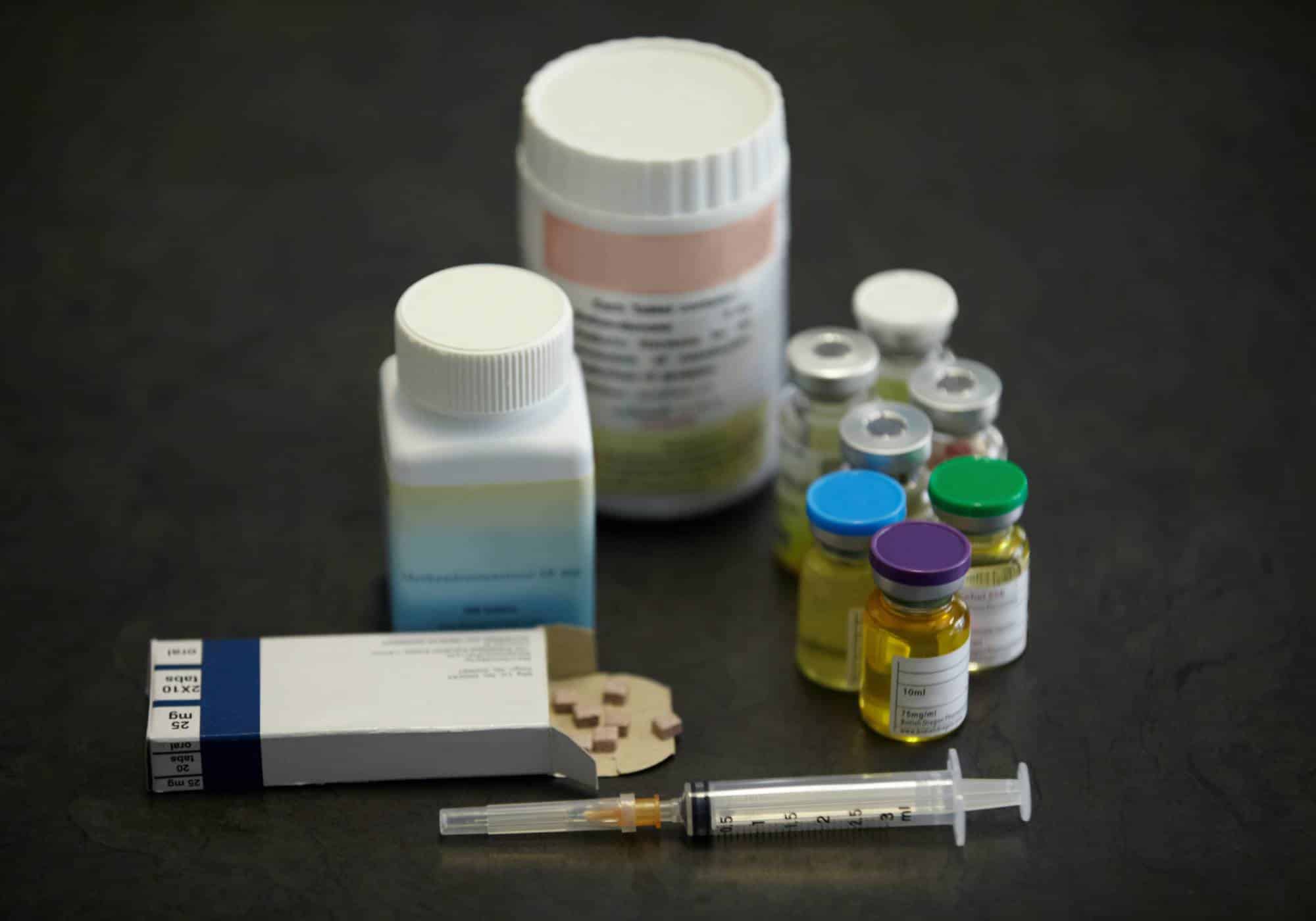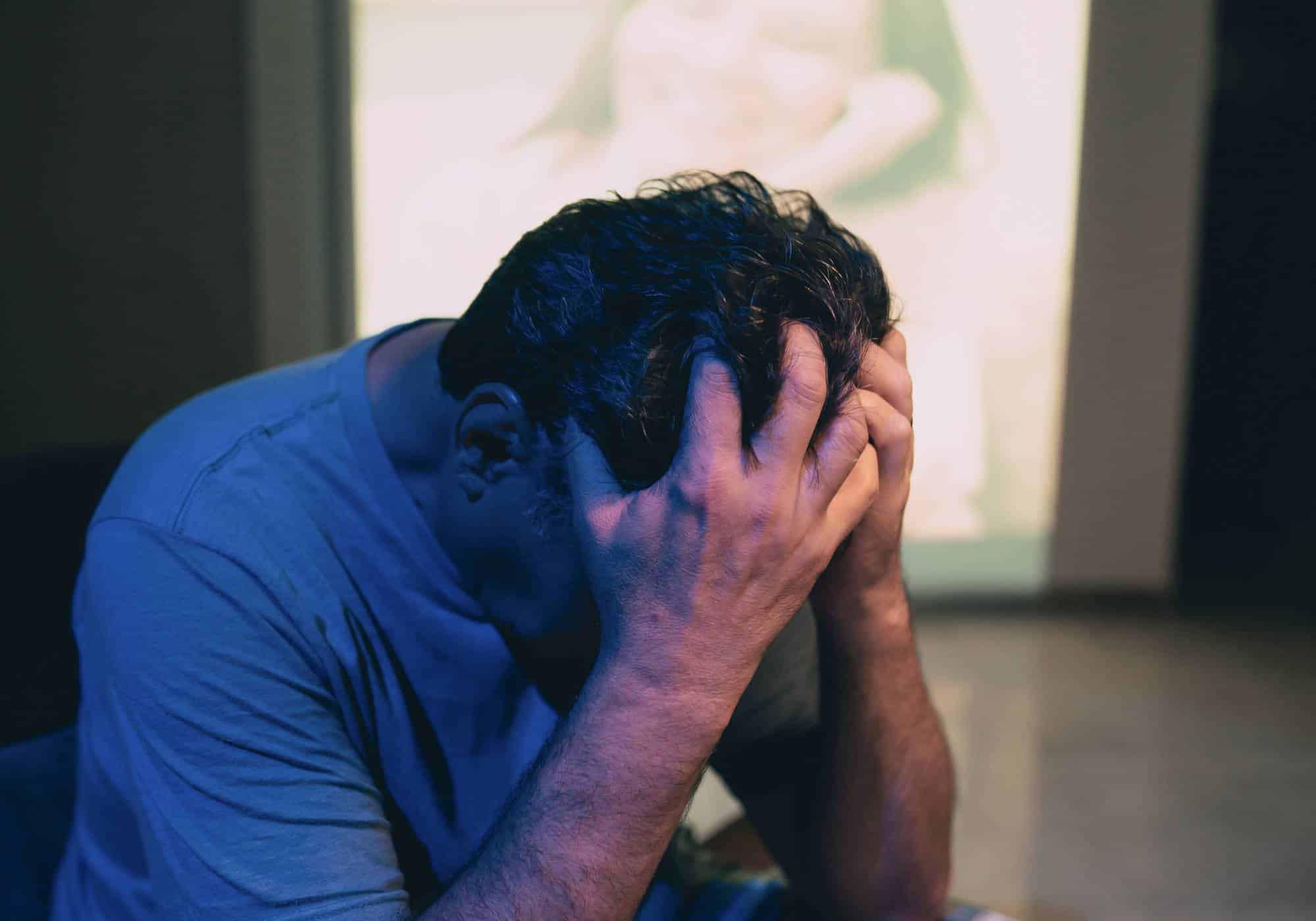PCP (phencyclidine), also known as angel dust or fry, is a potent dissociative and hallucinogenic drug initially developed in the 1950s for use as an anesthetic. However, it was discontinued in the 1960s due to severe adverse effects linked to its consumption.
If you’re concerned about PCP addiction, either for yourself or someone close, a key question is: how long does PCP stay in your system? This article will delve into the nature of PCP and its duration within the body, providing essential insights into understanding its impact.
What is PCP?
PCP, short for phencyclidine, is a dissociative substance known for its hallucinogenic and tranquilizing properties. It impacts the brain by disrupting neurotransmitter activities, particularly dopamine, within the central nervous system. This interference results in changes to perception, hallucinations, and variations in mood and behavior.
Available in multiple forms such as powder, pills, and liquid, PCP can be consumed orally, smoked, or dissolved for intravenous injection. The way PCP is taken affects the duration it remains in the system.
How Long Does PCP Stay In Your System?
The duration PCP remains in your system varies, with its half-life estimated between 7-46 hours, and an average half-life around 21 hours. The half-life concept helps estimate how long it takes for an individual’s metabolism to reduce the drug’s concentration by half.
This metric is crucial for gauging how long a drug might stay in someone’s body. Fat-soluble (lipophilic) drugs like PCP tend to linger longer than water-soluble (hydrophilic) drugs. PCP’s elimination primarily involves the liver, though the method of consumption affects its breakdown; smoking PCP destroys nearly half due to heat, unlike snorting or injecting.
Based on the average half-life, eliminating PCP from the system could range from about 1.5 days to 10 days. Yet, since PCP is fat-soluble, it might be stored in fat cells, extending its half-life to up to 72 hours for most, leading to an elimination period of roughly 17 days.
The exact half-life and duration in the system can differ significantly among individuals, influenced by factors such as drug type and personal metabolism.
Factors on How Long PCP Stays in Your System
The lingering presence of substances like PCP in the system prompts many to seek methods for more effectively clearing these drugs from their bodies. To approach this, it’s crucial to grasp the impact of PCP addiction on its retention in your system.
Several factors can influence how long PCP stays in your system, including individual health conditions and genetic predispositions, particularly with PCP consumption. Here are key factors that determine the how long PCP stays in your body:
- Hydration Levels: Adequate hydration is essential for detoxifying the body. Individuals with lower hydration levels may find it more challenging to expel PCP from their system.
- Frequency of Use: Regular users of PCP or other substances tend to accumulate higher levels of the drug in their bodies. As tolerance to the drug increases, so does the duration it remains detectable.
- Age: Younger individuals typically process substances like PCP more efficiently due to more robust organ function, compared to older adults who may have a diminished capacity for drug metabolism.
- PCP’s Half-Life: The half-life of a drug is the period it takes for the body to eliminate half of its concentration. For PCP, about three days are required to reduce its presence by 50%.
These factors collectively contribute to the variability in how long PCP can be detected in one’s system, underscoring the importance of considering individual circumstances when assessing drug elimination times.
How the Body Processes PCP
When PCP is introduced to the body, it triggers a complex series of actions that dictate its duration within the system, illuminating the aspects that affect PCP’s bodily presence.
PCP Absorption and Distribution
PCP is quickly absorbed into the bloodstream, either through the gastrointestinal tract upon ingestion or the lungs if smoked. It then spreads throughout the body, reaching the brain to produce its hallucinogenic effects.
The absorption and distribution rate can be influenced by the administration method, the individual’s metabolic rate, and other substances present in the body.
PCP Metabolism
PCP’s breakdown mainly happens in the liver, where enzymes transform it into different metabolites for elimination. The metabolic process varies from person to person, affecting how quickly PCP leaves the body.
PCP Excretion
The body disposes of PCP and its metabolites through urine, feces, sweat, and exhalation, with a significant portion excreted unchanged via urine. This elimination process is subject to individual factors like hydration levels, kidney efficiency, and personal metabolic rate, impacting the timeframe PCP stays in the system.
How And Why Do People Test For PCP?
PCP testing is carried out in multiple settings for diverse reasons, including:
- Medical Settings: Hospitals, clinics, or emergency departments might test for PCP as part of diagnostic evaluations.
- Professional and Recreational Settings: Workplaces, sports organizations, or insurance companies may conduct PCP tests to assess suitability for employment or participation.
The substances tested for PCP can include urine, blood, saliva, and hair, depending on the specific context and requirements of the test.
PCP Detection: Testing Methods and Timelines
Various tests are available to detect PCP in an individual’s system, each with different detection windows and accuracy levels.
- Urine Tests for PCP: Among the most common methods, urine tests collect a sample for laboratory analysis. These tests can identify PCP 4 to 6 hours post-use and trace its presence for 7 to 14 days.
- Blood Tests for PCP: Offering greater precision, blood tests are typically conducted when the user is under the influence of PCP, often in hospital settings to identify multiple drugs.
- Hair Tests for PCP: Hair analysis can pinpoint PCP use 5 to 10 days after exposure and track usage for up to 90 days, providing a longer detection window.
- Saliva Tests for PCP: While less frequently employed, saliva tests can detect PCP within 5 to 10 minutes of use and continue to be effective up to three days later.
Unique to PCP is its storage in body fat, gradually releasing over time and prolonging its effects. Typically, PCP’s half-life is about three days, extending for heavier users, with brain detection possible up to a week.
Testing for PCP requires caution due to possible false positives from over-the-counter medications such as:
- Tramadol
- Ibuprofen
- Dextromethorphan
- Imipramine
- Diphenhydramine,
- Ketamine
- Antidepressants.
It’s crucial for individuals undergoing testing to disclose any medications to avoid misinterpretation of results.
Why Do People Use PCP?
Despite the alarming reasons leading to the cessation of medical use of PCP, it found favor in the counterculture movements of the 1960s and ’70s. Today, individuals might still seek out PCP for its ability to produce:
- Intense euphoria.
- A sense of invincibility.
- Perceived enhancement in physical strength.
- Improved social and sexual confidence.
- Heightened excitement.
- Vivid hallucinations.
- An insensitivity to pain.
- A disconnected feeling from one’s environment.
- Surge in adrenaline levels.
- An altered perception of time.
At lower doses, PCP’s effects are somewhat akin to alcohol intoxication, whereas higher doses amplify feelings of disassociation and can lead to erratic behavior.
Signs of PCP Addiction
Recognizing PCP addiction involves being alert to several indicative signs of dependency on this potent drug. If you observe any of the following symptoms, it’s crucial to seek treatment promptly or assist the affected individual in acknowledging the detrimental consequences and motivate them towards recovery:
- Unpredictable behavior patterns
- An overpowering urge to consume PCP
- A history of PCP use
- Denial of consumption despite evident symptoms
- Intense cravings for PCP
Addiction manifests uniquely in every individual, making it essential to attentively observe behavior changes and consider any past substance use for an accurate evaluation. Denial is a common trait among those struggling with addiction, often complicating intervention efforts.
Frequently, individuals using PCP attempt to avoid detection of their drug use on tests. Some may resort to detox attempts to eliminate PCP from their bodies, which is ineffectual due to the drug’s accumulation in fat tissues. Abstinence from PCP is the only effective method to clear it from the system. Detox regimes and so-called purge diets are not only ineffective but could pose additional health risks.
Navigating addiction is challenging for both the individual and their supporters. Offering compassionate support can encourage open discussions about their struggles, leading to acknowledgment of the need for help. Engaging with treatment facilities like Hope Harbor Wellness presents a beacon of hope for those facing PCP addiction in Atlanta, GA, offering personalized care and comprehensive treatment strategies to foster recovery and a return to a healthier life.
What Happens When You Stop Taking PCP?
Stopping PCP usage, similar to ceasing opiates, triggers a spectrum of withdrawal symptoms. These symptoms can vary widely in their intensity, from mild and manageable to intensely painful and uncomfortable. Some of the withdrawal symptoms associated with stopping PCP include:
- Elevated blood pressure
- Increased body temperature
- Impaired speech
- Muscle spasms
- Hallucinations
- Seizures
- Changes in weight, typically a decrease
- Cognitive difficulties
Individuals undergoing challenging withdrawal from PCP should consult with healthcare professionals, particularly if their mental health is significantly impacted. A gradual tapering off PCP is advisable to mitigate psychological distress stemming from withdrawal.
Furthermore, it’s crucial to seek medical guidance, especially when withdrawal symptoms escalate, impacting daily life and activities. This step is essential for determining the most suitable treatment plan tailored to the individual’s needs.
Treatment for PCP Addiction
There is hope and effective treatment for those battling PCP addiction. Should you or a loved one be prepared to embark on the journey to recovery, don’t hesitate to reach out at 678-929-6304 today.
Hope Harbor Wellness provides a comprehensive range of outpatient addiction treatments tailored to fit your unique journey towards recovery, including Intensive Outpatient Programs (IOP), Partial Hospitalization Programs (PHP), and standard outpatient treatment in Atlanta, GA. Our dedicated team tailors the treatment plan to cater to your specific requirements, ensuring a personalized approach to recovery.
Our admissions staff is on standby around the clock to address any inquiries about our facility, navigating payment options for treatment, and confirming your health insurance’s coverage for rehabilitation services.
To quickly verify your insurance coverage for rehab, feel free to utilize our secure online verification form at your convenience. Delay no further in seeking the support and treatment you deserve.












